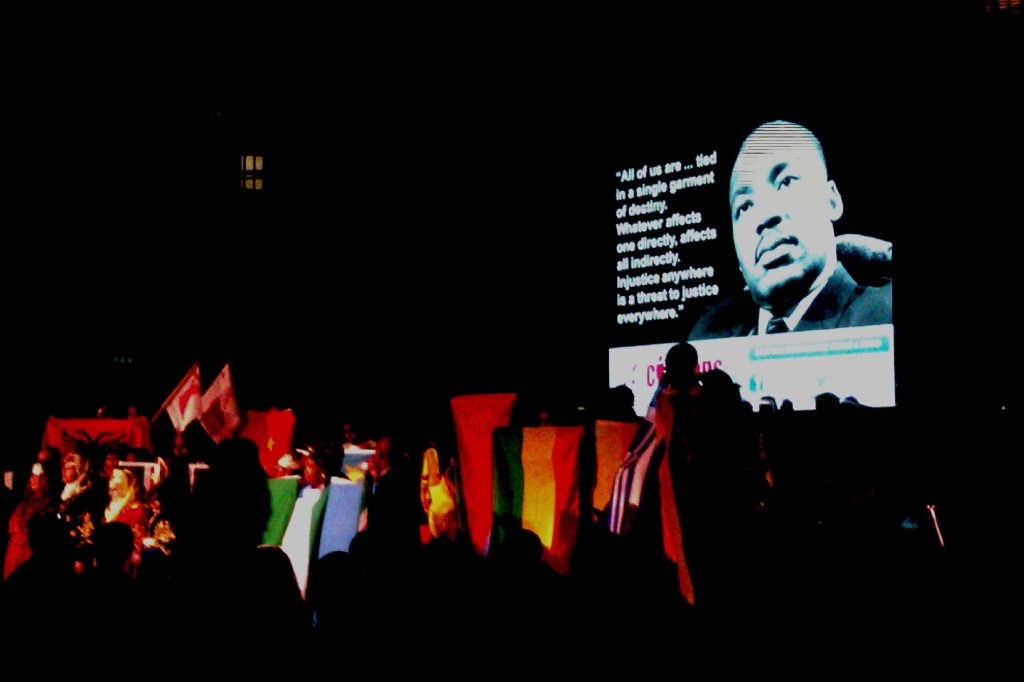Centre Director Angus Ritchie responds to the newly-released Census figures on religious affiliation:
Today’s Census figures show a much-heralded decline in Christian affiliation, and a significant increase in the number of English and Welsh citizens declaring themselves to be of no religion. In advance of their publication, there was much speculation as to which side of the psychologically crucial 50% the number of Christians would be (in the end, the figure was 59.3%).
In the midst of the debate which these figures will provoke, it is worth getting some perspective. The majority of English and Welsh people identify themselves as Christian, at a time when wider social pressures give less and less encouragement to such identification. There is no room for complacency – and no point in denying that this number has declined substantially in the last decade. But these figures tell of a striking persistence of religious belief and practice. The public square continues to be a place where people of faith and people of no faith coexist in large numbers – with people of faith forming the substantial majority.
In London in particular, the public square has been a very diverse place for many years, with a significant (and growing) number of people of other faiths. In particular, here in Tower Hamlets, there is a sizeable Muslim population. So it is no surprise that the borough is one focus of a major University of Notre Dame study of how people with Christian, Muslim and secular worldviews negotiate and promote a common good.
This study is illuminating the unique role of faith in engaging people in action for the common good, and the ongoing relevance of the national church. In Tower Hamlets – the one London borough where Christianity is not the largest faith – the Church of England is at the heart of a wide range of social action. Among the many examples are Foodbanks and money management services (which meet the needs of the people most vulnerable to the ongoing recession and the increasingly intense welfare cuts); Community Organising ( which seeks to address the root causes – through campaigns for a Living Wage and a cap on payday lending rates), and “Near Neighbours” – an imaginative programme to build relationships across faiths and cultures, which is proving that the parish network can reach and support people far beyond the church’s walls.
The most casual observer of the news headlines would see that faith is more in the spotlight than ever. A substantial proportion of the public still turn use language of faith to ask the ‘big questions’ about the meaning of their individual and common life. This is evident from the increasing numbers of people who darken the doors of our Cathedrals (as well as the members of Occupy who camped outside several last year). In London, there are signs of church growth which buck the national trend, and is occurring across a variety of social groups – with church planting and migration both identified as significant causal factors.
None of this is to minimise the task which faces the church: to articulate a constructive, distinctive voice in the public square, and so to present Christian Gospel in a way that is accessible and compelling. But many churches in the most religiously diverse contexts are doing exactly that.
The wider church and the wider society have much to learn from these congregations. They show that it is possible to combine action together on issues where there is a common mind with peaceable, respectful debate on issues of fundamental disagreement. Christianity and Islam are both missionary religions – we each believe ourselves to have distinctive truths to share with people outside the faith. Part of what it is to respect and care for another person is to engage with them on issues of disagreement: to seek to share what one believes to be true, and correct what one believes to be mistaken. (The same is true, of course, in the relationship between people of faith and atheists – which is why I spent last Thursday in debate with the atheist writer Julian Baggini. For each of us, respecting the other involves seeking to share with them what we see as the truth.)
Whatever else we make of the Census figures, this much is clear: pluralism is here to stay, with a growing array of religious and secular worldviews commanding significant allegiance. Whatever challenges this presents to the churches, it is hardly the world the ‘New Atheists’ have been campaigning for. The task for us all is to negotiate and build a truly common life – bearing witness with confidence and generosity to that which we believe most deeply.
The Centre’s Presence and Engagement Network (PEN) is holding an event in Southwark on Making Sense of the Census on the afternoon of Monday 18th February – before the PEN 2013 Lecture, to be given by the Dean of St Paul’s, the Very Revd David Ison.




